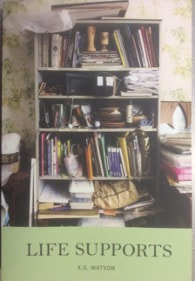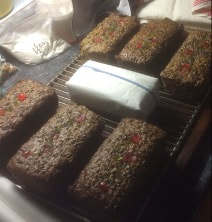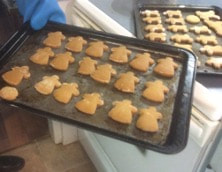- Home
- About Me
-
Children's Literature
-
Picture Books
- Tamara Turtle's Life So Far
- Chloe the Unfeathered Parrot
- Merry Myrrh the Christmas Bat - new edition!
- Sloth the Lazy Dragon - new edition!
- Dog Band
- Libby the Lobivia Jajoiana
- Beverlee, la chatte de Birmanie
- Beverlee Beaz the Brown Burmese - new edition!
- Mixter Twizzle's Breakfast
- Picture Books COMING SOON
- Middle-Grade Novels
- Out of Print Editions
- Stories and Articles
-
Picture Books
- Novels
- Scripts
- Short Fiction
- Merchandise and Shop
- Upcoming Events
- Home
- About Me
-
Children's Literature
-
Picture Books
- Tamara Turtle's Life So Far
- Chloe the Unfeathered Parrot
- Merry Myrrh the Christmas Bat - new edition!
- Sloth the Lazy Dragon - new edition!
- Dog Band
- Libby the Lobivia Jajoiana
- Beverlee, la chatte de Birmanie
- Beverlee Beaz the Brown Burmese - new edition!
- Mixter Twizzle's Breakfast
- Picture Books COMING SOON
- Middle-Grade Novels
- Out of Print Editions
- Stories and Articles
-
Picture Books
- Novels
- Scripts
- Short Fiction
- Merchandise and Shop
- Upcoming Events
|
About Life Supports: Gerald Scottman is one of the world’s best players of the Pipe Organ. His phone contact is on every maestro’s speed dial when they need someone to play an orchestral organ part. On page one, he wakes in the ICU. By page three, the reader has found that Gerald has suffered a stroke and that nobody can understand him. He also has lost the use of his left arm. After lengthy physiotherapy, it is decided Gerald can’t go home. He could’t even answer the phone. So now what? He moves to a new life in the Senior’s Home. What do the kids do with his house full of music - wall to wall, ceiling to floor, garage and basement too. This is the story of how people come together and support each other in Life. Excerpt from Life Supports... As I settled into the car in the shotgun seat to leave the hospital, it was with relief. Yes they were all nice people but God I hate feeling like an invalid. The feeling of release and freedom lasted long enough to try to reach for my seatbelt. “Shit,” I spat out when I realized I couldn’t catch the buckle of the seatbelt with my Left hand and pull it across my chest to snap into the latch. Donald immediately saw my distress and caught the meaning of the garbled sound I made. I pulled back so he could reach across, grab the buckle, pull out the strap and snap me in. Even so it was a wrestling match. It was a quiet ride for a couple blocks. I think the kids were trying to decide how to tell me I wasn’t going home and who got the short straw. “We’re taking you to the Retirement Home, Dad,” Jean said from the back seat. “You need more physio on your voice and arm. We moved your dresser into your room so you’ve got clothes. Steak is on the menu for tonight - little pieces of steak from miniature cows they keep.” I held up my right hand in a thumbs-up salute. “What about the organ?” I asked but it came out as nonsense noise. “The physiotherapists? Oh they’re killer cute,” Donald replied. I shook my head and sighed. I’d know soon enough. When we pulled up in front of the TerminalCare Retirement Home, I managed to get my right hand over to undo the seatbelt latch. That was a bright spot in the day. Before letting it go, I tried following the buckle back to its retracted position and then pulling it out with my right hand and across my body to the latch again. It worked. I couldn’t help but smile as I got out of the car. As a group we paraded through the lobby and sitting area to the office of the high-priced help. She saw us coming through the window wall around her desk and came, smiling and power- suited, to greet us. I could feel her laser eyes looking deeply into mine before I glanced away. We went through the pleasantries and then the head honcho took me to where I’d be staying. It was down a long hallway, deep in carpet, muffled in sound. As we walked, I looked into any room with an open door. Straight ahead was a bed where a shape lay framed in sheets, lit by the glow from a TV screen I could not see but which must have been around the corner just inside the doorway. My soul sank after the third copy. Donald led us into my room, hitting the light switch as he passed. I looked down and gritted my teeth prepared for another hospital room. There was a washroom on the left. I don’t know what was behind the hall door that opened to cover the space to my right. It hung open as I came in. Between the walls of a short hall which in every other room had framed a bed with a body was ... I had to blink to be sure it wasn’t a mirage. The others were ahead and had turned the corner to be out of sight to my right. I felt completely alone, like they had disappeared and I was looking at heaven’s gate. I realized I had taken two steps into the room and had stopped dead. I must have been there ... I don’t know how long - a second? a minute? When I shook my head and looked to my right, three faces were riveted, wide-eyed, on me. My mouth must have been open. I shook myself to shut my gaping mouth and looked back at it. It was my organ! The one I practice on a couple of hours a day! When I looked back at the faces they were smiling and I realized I was laughing with tears running down my face. Read on for more...and for recipes! I looked back at the centre of my world for longer than I cared to admit. My slippers, the ones I change into when I’m working, were on the shelf at the left end of the keyboard. On the other end, two pencils lay, pointed sharply. The lamp stood ready to brighten any page on the stand. Jean and Donald, I realized, were pretty teary-eyed as well. Rather than try to say anything, I held my hand over my heart and nodded gratefully. I took the two next steps to the end of the bench and slid onto it. My feet slid onto the pedals as though magnets attracted them. I did a heel and toe up them silently, unconsciously. Daylight, but no sun, streamed in from a window to my right. It would nicely illuminate the music stand in daytime. But where was the music? I looked around to my children in unspoken question. Donald pointed to my left where one of my four-drawer filing cabinets stood. “It should be on the right,” I thought so I can reach it easily. But if it was, it would partly block the window. “Rightly placed,” I agreed. On top of the filing cabinet I realized when I looked back, was my register, sitting atop a pile of its earlier brethren. My breath caught with relief. On those pages was the record of every day of practice, every concert, every service I had ever played on the organ. My first teacher gave me the first tome on my very first lesson. I couldn’t reach the pedals when I started but I had been playing piano long enough then to know the keyboard. My lesson ended. While I was shaking with the thrill of the moment. He presented me with something that looked like a banker’s ledger from a Victorian business. It must have weighed ten pounds. The book was leather-bound and filled with a thousand numbered, unblemished, blue-lined pages. My teacher told me to write the date in the upper right side of the first page and handed me his fountain pen to do it. Opposite on that line, on the left side of the page, he told me to write the address and city where we were. Underneath I was told to write the names of the pieces that had taken my time, the source book from which I worked and how long the session had been. Near the left margin, under “Comments” he told me, “As you get better, you will write there what you did well and poorly, what you need to do to get better, how you feel from what you did.” I suddenly felt the weight of my lifetime bearing down on my skinny shoulders. “This was too much,” I thought. “Suppose I want to quit?” I asked. He slid the book over to read what I had written, then looked at me. “Think back a few minutes to how you felt when you stopped playing. Do you remember that shiver?” I nodded. He passed the book back to me, closed. “I believe you will not quit - you cannot quit. You were born for this instrument. “This,” and he patted the book, “will be the record of your life-long love affair with more than you can imagine. Now run along. I’ll see you next week.” That moment, so long ago, flashed through my mind when I saw my journals stacked on top of the filing cabinet. I swung around on the bench to my audience of expectant faces. The tears were still trickling down my cheeks. I sniffed and turned abruptly to the keyboard. I flipped the switch on and before anyone could move, jammed my right hand down onto the four signature chords of Handel’s masterpiece. My feet found the bass accompaniment without a glance. “Hallelujah.” It was thunderous. The lady-in-charge jumped out of her skin. Horror swept over her. This is exactly the sort of disturbance she had feared. Shouts of amazement came from the hallway. Scottman spun on the bench and bowed appreciatively. In the laughs and tears of the others, she had to agree that she had done the right thing but she could sense problems coming. With the cheering over, she led the group towards the dining room. Scottman had to fend off delighted greetings and responses from others in the hallway which only raised her anxiety another notch. He just nodded and smiled, held a hand over his heart like he was taking a curtain call. She left them to dine in a private room off the main dining room. She saw the kids leave. They had work to go to. She saw Mr. Scottman turn, shoulders sagging and start back to his room. The walk down the hall threatened to press the buoyancy of the dinner into the carpet but I knew I would be safe when I got there. First thing when I was back was to open my journal and record the day’s four-chord concert. It was hard to write under the ‘Comment’ heading “RH only, conflicted feelings, must think of recomposing - not decomposing.” I could stand beside my organ and write in the journal on top of the filing cabinet and that had been my whole focus - to keep faith with my mentor of so many years ago. I looked sideways along the keyboard and out the window beyond at the light from a fading sunset. “Nice,” I thought. “The window faces north. Steady light. But maybe I should put a protective towel or something over the end of the organ anyway to protect the wood from the light.” I’d returned from the bathroom with a bath towel and draped it over the end of the organ top, holding it in place by setting the weighty brass light for the music stand, on it. The door opened behind me as I fussed about keeping the towel spread protectively and moving the metronome to the other end of the top of the organ. “Good evening Mr. Scottman,” said a heavy-set matron in a yellow tunic and pant uniform that reminded me, except for the colour, of the institute from which I had just been released. “I’m Eva. I’m your PSW. I’ve come to get you ready for bed.” I reached to roll down the cover over the keyboards. The red eye saying I had not turned off the console, glowed still. I switched it off, checked that my earphones, on the shelf at the right end of the keyboard, would clear the covering and then let the lid rattle softly down into place. I guess one of the kids put them with the pencils when they saw how startled the Administrator was. I reached in my pocket for my key to lock it and realized I had no keys, no wallet, no phone, not even my Daytimer with my schedule. My breath caught. “Where are they?” I thought in a panic “... my keys, my pocket collection.” My eyes must have been darting around the room in alarm because the lady stepped back quickly and shot a glance into the bathroom. She quickly closed the door to the hall to reveal another door. She snapped on a light switch. “Here they are, I think,” she said and beckoned me across the room. There, in a room-sized closet, was my dresser, the sturdy arm chair from my wife’s grandmother beside it, and on top of my dresser, lined up on the antependium I had rescued from a church that had long been torn down, all the stuff I carried in my pockets. I breathed a sigh of relief. I went over to touch them just to be sure, counting as I did so. Flip-phone, pen, Daytimer, keys, wristwatch, wallet. I touched my face to be sure my glasses were in place. Seven items - all there. I realized suddenly the presence of the woman behind me and that I had rather rudely ignored her. I turned and waved a hand at her. “I’m sorry, I don’t recall your name or why you’re here,” I tried to say but it was just garbled nonsense. She repeated her introduction with a smile. I raised my eyebrows and hands to ask what a PSW was or did. “I’m one of the low-priced help here.” I followed her as she backed out of the closet and back to the organ. “I make sure you can get yourself together, shower twice a week at least. I also nag you if you depart from the straight and narrow. Any bumps, I help you over.” She smiled broadly. “My first job is to get your bed ready.” That is when I realized that there was no bed in the room - just the organ and the filing cabinet. She reached high on the wall where my audience had been standing and pulled a latch and down dropped a narrow cot. I had to back into my entryway to be out of the road. The bed was all made up complete with pillow and the quilt my wife made the year before she died. It was for a double bed and was too big for this one but it had been folded up on the sides to fit into the recess in which the bed fit. Now Eva dropped it down over the edges of the bed to the floor and folded the bedclothes back. There was a narrow walkway down each side of the bed. A wooden flap folded out at the head of the bed. “This is for a book you might be reading in bed,” she flipped on a recessed lamp, “and the well in the shelf is to secure a glass of water if you need one.” “You are the only one in the place with a bed like this,” Eva said. “You even have your own sheets.” I was a bit dazed. “So now you have to get into pyjamas and let me see if you can manage getting into bed.” She must have sensed my start at having to undress for her approval. “I’ve seen it all before, Mr. Scottman. Let’s start by getting your sweater off.” I didn’t move from my hallway. She stood aside as I struggled to pull my sweater with one hand, and then shrug my good shoulder out and catch the garment as it fell off my stricken arm. It caught on my hand. “Well done, young fellow,” Eva complimented. She reached to retrieve the garment from my disabled hand. Then she watched me unbutton my shirt and shrug out of it. “We’ll be sure your shirts are pre-buttoned for the biggest opening so the sleeve slips on and off your wrist. I’ll cut off other buttons if you want.” She slipped the shirt off my wrist and led the way into the walk- in closet. “Laundry in here,” she said dropping my garment into a lattice cylinder. “Let’s see you get off that undershirt.” When I successfully put on my pyjama shirt under scrutiny, I waved her on her way to suggest I could manage my pants by myself. She agreed and exited to bring my bedtime meds. I always wear my pants for several days. I only have three pair - all dark grey. They all match my suitcoat but they must be hung up to let the wrinkles fall out overnight. It is the practice of a lifetime and my next challenge. It took a while to lay my trousers over the back of my chair, smooth the legs flat down the back and onto the seat and then pinch the cuffs between the spring- loaded bars of my hanger. I hung them on the lower right hat hook of the hallway mirror that had been in my grandfather’s house and which Donald must have moved from my bedroom wall at home. It was good to see another friend. I looked to the clothes rod beside to see their mates waiting under wraps from the cleaners, suitcoat next, six ironed, white long-sleeved shirts next tuxedo in the garment bag beyond. My son had to have included the rack of ties beyond as a joke. Rakish and open-necked would be my new style. By the time she returned I had done the teeth and toilet routine and was sitting on the bed she had turned down. “Breakfast is after seven and until nine. You are not on the room service list,” Eva said as I laid back and she flipped the quilt over me. “Here’s the call button if you need help during the night.” She pointed to the softly glowing switch hanging over the small book shelf. “And if you are not up by nine, I just fold up the bed with you in it. Got it?” she enquired. I gave her a thumbs up salute. “You’ve done really well, today, Mr. Scottman,” she said softly. “Welcome to our humble abode. Sleep well.” She smiled and stepped out of the room. The door clacked gently behind her. “I should have asked her to tell me a story,” I thought. I don’t know how long I lay staring up at the ceiling, weakly lit by distant streetlights shining through the window. I don’t think it was long. During the house clean-out, amidst all that music, a collection of recipes is found - for Christmas Cake, both Light and Dark, and gingerbread cookies. They set off arguments at tables where they are served about who gets the last piece. I know, because I make them. You can too and enjoy a great story as you eat them. |
Archives
July 2024
Categories |







 RSS Feed
RSS Feed
